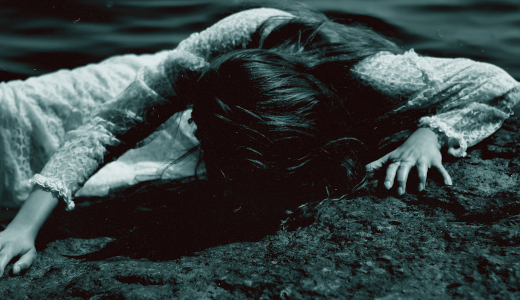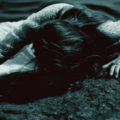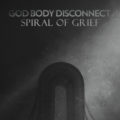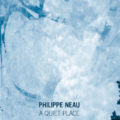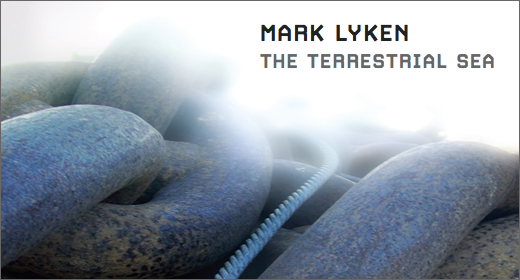The Ever Sounding Sea Of Grief brings a slow moving, contemplative, dark and sustained, thrilling and colossal poetical/musical drama of overwhelming expressive intensity with hints of hidden cathedral organs holding each listener up to the sky above their wearisome moments and extending the illustrative emotional mood.
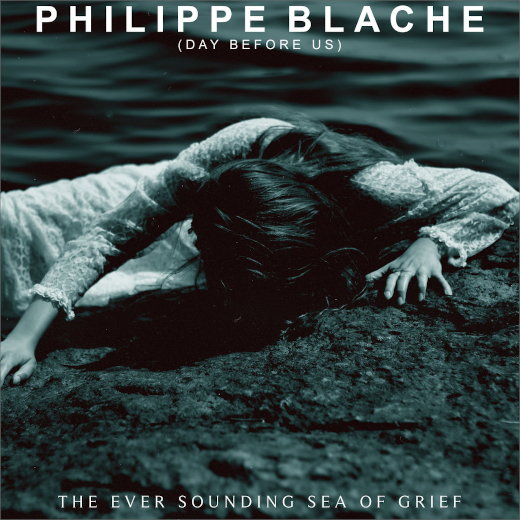
Noise ambience and modern classical minimalism with a subtle cinematic edge
Tragedy is perhaps one of the oldest themes for artistic expression, possessing the negative side of the human experience spectrum, allowing the development of an essential coping skill, as the certainty of our universal and personal ultimate demise awaits each, we face and perhaps we require something, but so far nobody has a perfect formula. Here, The Ever Sounding Sea Of Grief brings a slow moving, contemplative, dark and sustained, thrilling and colossal poetical/musical drama of overwhelming expressive intensity with hints of hidden cathedral organs holding each listener up to the sky above their wearisome moments and extending the illustrative emotional mood.
Why would anyone choose to contemplate such sorrowful strange or frightening events that take place in sad and mysterious marine locations, definitely out of the ordinary and unexpected, slightly odd or even a bit weird, and characterized by mystery, horror, death and gloom?
The answer is as ancient as theater itself. We seem to seek a mirror for the characters and events of our own lives, a cathartic and spiritually uplifting musical journey, always dreadfully remembering that everyone is alone, and sometimes shrouded in darkness. We seek to find support for our own mixed feelings, but mostly we crave a tale well told. We can briefly visit an environment of fear, the threat of supernatural events, and the intrusion of the past upon the present, a purging ritual mainly built around harrowing reverb piano keys, blackened skies of droney textures, then meet majestic organ patterns within a foreboding sonic spectrum. Above all we crave a loose and well delivered literary aesthetic of fear and haunting, incursions within the world of avant gardism, noise ambience and modern classical minimalism with a subtle cinematic edge.
Here, constant listener, you will find the music of Philippe Blache, with poetry from Anna Kingsford (1848-1888), wonderfully and sparsely narrated by Olga Gabris, plus the visual imagery by Natalie Ina. What I see on the album’s cover illustration is an exhausted young Caucasian adult female in lacy apparel clinging to a rugged rock before a dark water, filled with trepidation, her sorrowful head bowed low, her hands on the surface of the dead stone where the gloom laps the shore.
Welcome to the “The Ever Sounding Sea of Grief” (7:34), an appreciation of the joys of extreme emotion, the thrills of fearfulness and awe inherent in the sublime, and a quest for atmosphere. I hear sustained tones, deeper and darker they grow. I hear a slow melody of rushing gloom, and eventually a calm and sorrowful voice speaking but a few words mixed with the relentless eternal waves crashing on the shore. The song fades and ends suspended, probably continuing on its own forever without our listening ears, such is infinity.

The tones are unhurried ::
We are all living tragedies, because we all end the same way, the natural cause of terror is not the supernatural but personal entropy, disability and societal horrors, none are specified here, therefore all and every devastation applies. “When Breathless Midnight Beats to the Same Litany as My Heart” (8:39), a rushing hissing gloom, a deep cavern somewhere lost, we can hear it. Amidst the sounds from the sea entering that cavern, a relentless back and forth of the tides, the heart’s petitions are also herein unspecified. Yet that litany I assume always to pertain to a yearning for release from sorrow. So then perhaps within this cave midnight is constant in the heart, but we know from experience that there is choice and even liberation. Now the cathedral organ rolls and holds high above us the heavy emotion, and maybe there is a choir, the tones are unhurried.
The sorrowful voice, she is back, speaking just a few words, as the ocean overtakes the old holy place, “Among the Ruins of a Shrine” (4:28), musical omens and presentiments, representations in slow rhythm and language and tune, utilized as a source of strength, using these means either separately or in combination, alas never enough time to take all extremes of sadness and lamentation. We persist. We continue. We can not go on. We go on.
Lose your own sense of self and accept the version of you that is expected by everyone else, time alone inspires such powerful feelings of awe, time implies that the story is set in the past, and gives an impression of isolation or dissociation from the rest of the world, and conveys ancient religious associations. Behold the “Grey Empurpling Heavens” (16:07), lengthy and gloriously slumbering, here is where the poem from Anna Kingsford emerges, spoken steady sedate slow-moving, as the protracted and gradual old church organ reaches into the darkness beyond the sky:
Slowly athwart the grey empurpling heavens
The bearded evening clouds swept slowly by
With ghostly arms outstretched, and shadowy robes
Curling around them; one by one they passed
In sad procession, solemnly and still;
A crowd of phantoms following to the tomb
The fair departed Day.
To somehow bring this odyssey of tragic grief to a concluding resolution, now the feeling contains some hopeful shadows in an otherwise relentless hissing surf. Revealing with relief the Vesperal Star, the evening star, perhaps the planet Venus seen before sunset or perhaps old Hesperus himself signaling from a great distance.
At last the motion is now not absolutely downward, here is a form of relief from otherwise perfect lasting grief, “L’étoile Véspérale” (6:00), a beacon of hope in the returning night.
Now in my mind the ancient Euripides cries out, “Come back. Even as a shadow, even as a dream…”
Fade to black and silence.
The Ever Sounding Sea Of Grief is available on GH. [Bandcamp]






